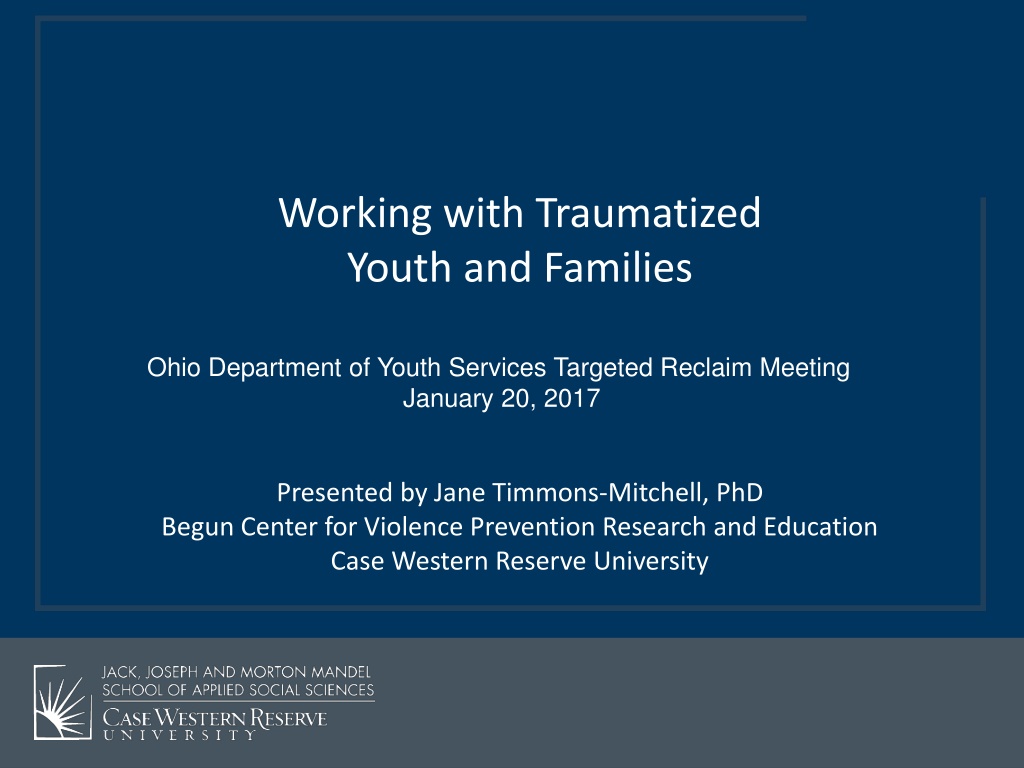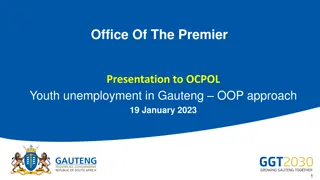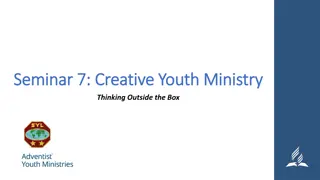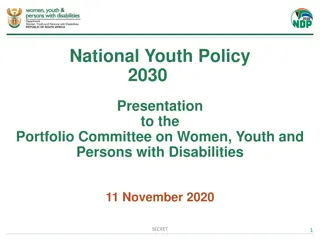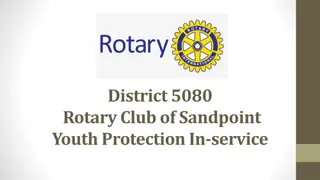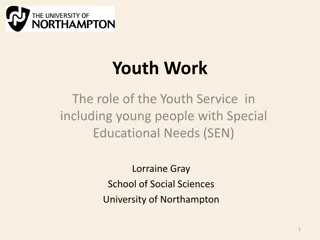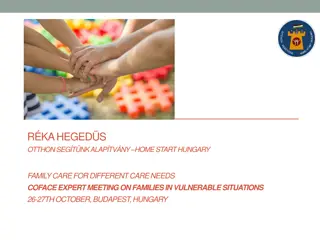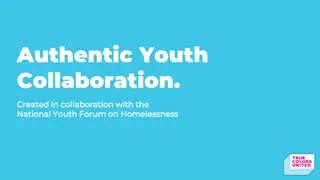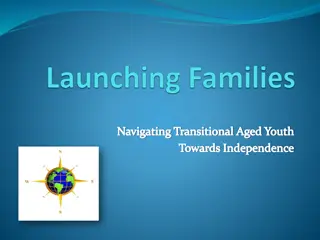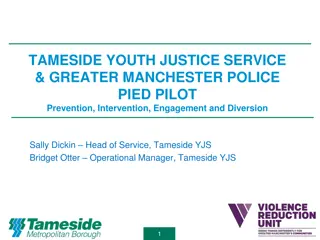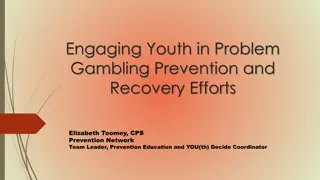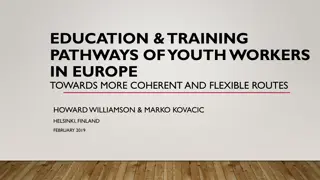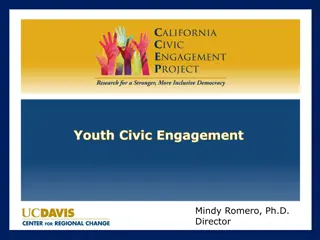Strategies for Working with Traumatized Youth and Families
Addressing the challenges of working with traumatized youth and families involves acknowledging individual responses to trauma, understanding the complexities of predicting reactions, and employing specific strategies such as building trust, listening attentively, emphasizing positives, and promoting kindness to create a supportive environment. Recognizing the diverse range of responses from traumatized youth, this comprehensive approach aims to guide professionals in providing effective support and care.
Download Presentation

Please find below an Image/Link to download the presentation.
The content on the website is provided AS IS for your information and personal use only. It may not be sold, licensed, or shared on other websites without obtaining consent from the author. Download presentation by click this link. If you encounter any issues during the download, it is possible that the publisher has removed the file from their server.
E N D
Presentation Transcript
Working with Traumatized Youth and Families Ohio Department of Youth Services Targeted Reclaim Meeting January 20, 2017 Presented by Jane Timmons-Mitchell, PhD Begun Center for Violence Prevention Research and Education Case Western Reserve University
The Elephant in the Room? --as Fred and Jeff have shown, many juvenile justice involved youth are affected by trauma. --it is likely that the youth in front of you has experienced some kind of trauma. --with that in mind, how should you approach working with traumatized youth and families? 2
Its All in How You See It There is not one way of reacting to trauma Sexual abuse or assault, for example, is not one thing; the way people react to it varies a lot. Most victims of trauma do not suffer symptomatic reaction. 3
Predicting Response is Difficult The meaning of the trauma may be quite individual. We assume that someone who is abused by a close relative will have a more pronounced reaction than someone who is abused by a romantic partner; this is not necessarily the case. Things that relate to greater symptomatic reaction: earlier onset; greater frequency, persistence; less easy to avoid. Reaction to trauma can be mitigated by good support, especially from a parent. 4
Youth Affected by Trauma Show A Range of Responses There are many ways traumatized youth may present. Angry, defiant, verbally and physically aggressive Withdrawn, depressed, suicidal, not interacting with others Using substances to mask feelings or flashbacks Nothing out of the ordinary 5
What Should You Do? General strategies: Be 100% trustworthy. If you say you will do something, do it. If you cannot do something, say so. Expect that the youth will be trustworthy too. Keep it calm and quiet. Listen more than talk. 6
Focus more on emphasizing positives than on calling attention to negatives in a youth s behavior. Try to find out what s in it for the youth and look for opportunities to reward. Help them learn to give back; helping others is a way that they can help themselves. Be kind. It may not be reciprocated, but it s the right thing to do. 7
Questions/Feedback Contact information: Jane Timmons-Mitchell, PhD jct2@case.edu 8
